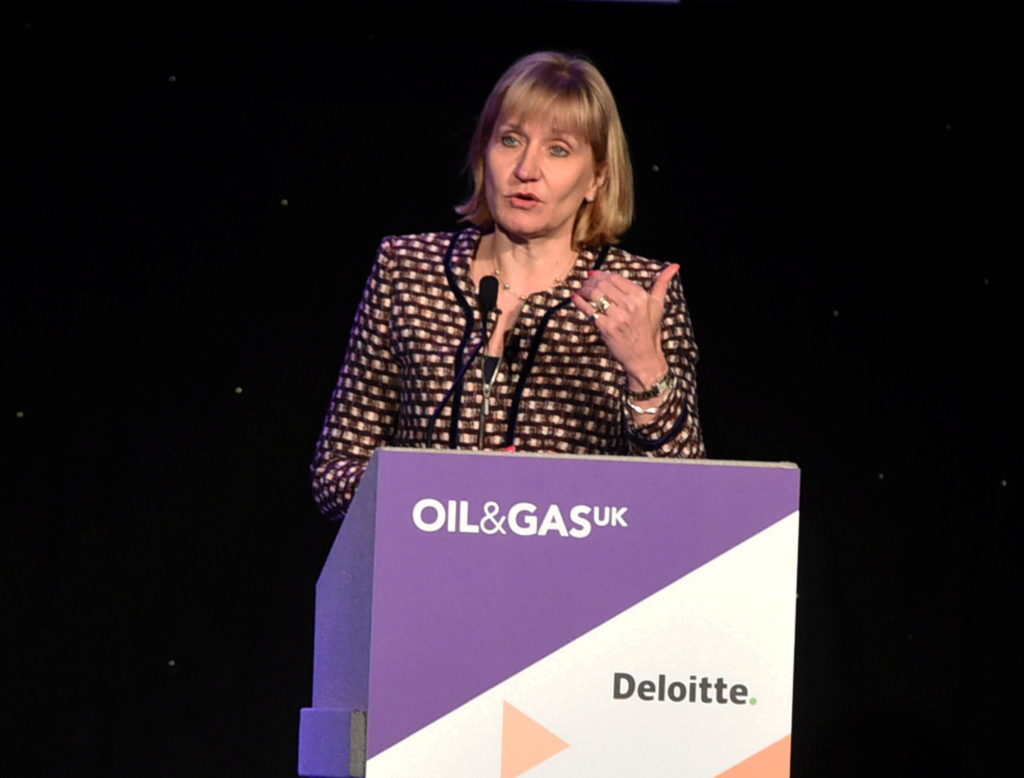
Oil and Gas UK said “there will be no miracles here” as it yesterday outlined the cautious approach needed for the sector emerging from the downturn.
The trade body launched its 2018 economic report at the AECC, which highlights challenges ahead, particularly for the supply chain.
Chief executive Deidre Michie opened proceedings, and said there is ‘no simple solution’ for the sector.
She said: “We are emerging from one of the most testing downturns in our history and I’m often asked by the media ‘where are we now? Are we still in the downturn? Are we out of the downturn?’
“I understand it is one way of making sense of what is a complex and ever-changing industry, we all want a simple solution. Like some of those adverts you sometimes see that say ‘try this and you get results in 24 hours’.
“But in Edinburgh, at the Scottish Gallery of Modern Art, there is an excellent piece of outdoor art created by Nathan Coley and it simply says ‘there will be no miracles here’.
“The phrase is taken from a royal proclamation made in France during the 17th century, and while it might feel a bit depressing, it does offer a sensible perspective for our sector. “
She added that the “ingenuity and resilience” of the industry means it is best placed to turn future challenges into opportunities.
A key message from the report was that the supply chain, which has been particularly badly hit by the downturn, could be squeezed by an expected increase in activity in the North Sea.
David Clark, executive vice president of services at Aker Solutions, believes new ways of working could be the key to turning these challenges into opportunities.
In particular, he said early engagement is important to reducing project costs.
He said: “One great example to give is the integrated approach we took with our customer Equinor in the development of the Johan Castberg project.
“We’re currently delivering both the FPSO design and the subsea infrastructure for this flagship greenfield project in the Barents Sea.
“By integrating our thinking across the entire life-cycle of the asset we’ve seen the FPSO costs reduce by 50%.
“This trust in early engagement with our customers is vital and this level of collaboration could create significant savings for the UKCS moving forward.
“Operators can save money and generate better results by engaging early, standardising, reducing unnecessary documentation and inspection requirements, as well as reducing unnecessary tendering.
“Equally, the supply chain can help build that trust by being more collaborative and transparent.”
Recommended for you

